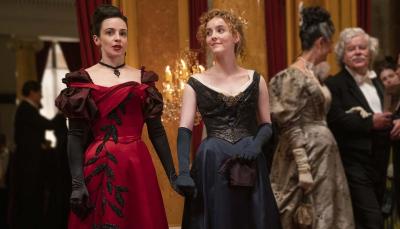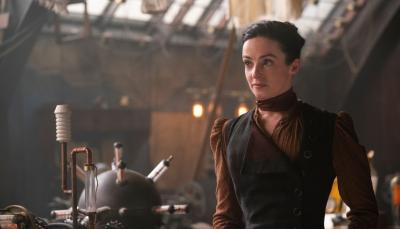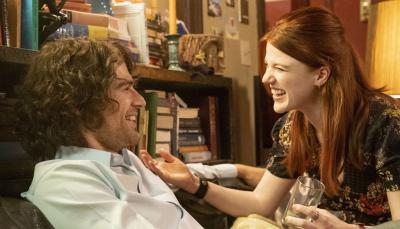'The Nevers' Is A Great Idea, But Also Exhausting
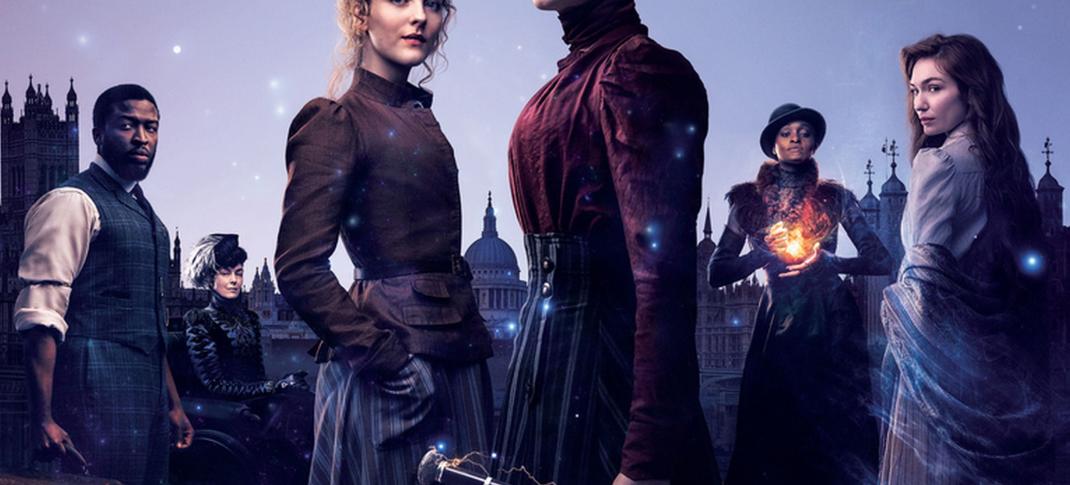
In today's Hollywood, a completely original work of fiction as a prestige TV series is a rare sight. Most of the time, when a production studio sinks that kind of money into a series, especially a CGI heavy fantasy-laden one, they want a built-in fanbase from a series of novels or comics. HBO's The Nevers takes a risk and creates something wholly new, wholly fascinating, and surprisingly enjoyable, at least in its first six episodes. However, there are problems, glaring problems - most of which begin and end with the show's creator, Joss Whedon. To paraphrase Coco Chanel: This is a TV show that should look in the mirror and take off one plot point before exiting the house.
When prestige TV first rose in the early aughts, so did the role of the "showrunner." The position always existed in TV, the point person who coordinates all the aspects of the show. But with high art television came the idea of the showrunner as auteur. Joss Whedon was part of the initial vanguard of this group. His Buffy The Vampire Slayer was so popular, Warner Bros. and Paramount used it to launch an entire broadcast network, The CW, putting it in the rarefied air of shows that defined an arm of national entertainment. (The others are Masterpiece Theater and Sesame Street for PBS and The Simpsons for Fox.)
The Nevers was supposed to be Whedon's grand comeback to television. And the show certainly has all the hallmarks of why Whedon was held in such high regard. The case in which he balances a massive amount of storytelling makes it look easy. One can see the talent that drove 2012's The Avengers to break box office records and defined the entire crossover superhero formula of wisecracking snark-flavored action sequences balanced against deep feeling and drama. It's become the Marvel formula that drives the success of the MCU's 22 movies, 4 TV shows, and counting, and was part of the success that helped launch Disney+. The Nevers displays it here, too, in spades.
But with that sort of track record, it's also common for production studios to get out of the way, a "don't touch it, it's a genius at work" attitude. The Nevers suffers deeply from a lack of editing eye.
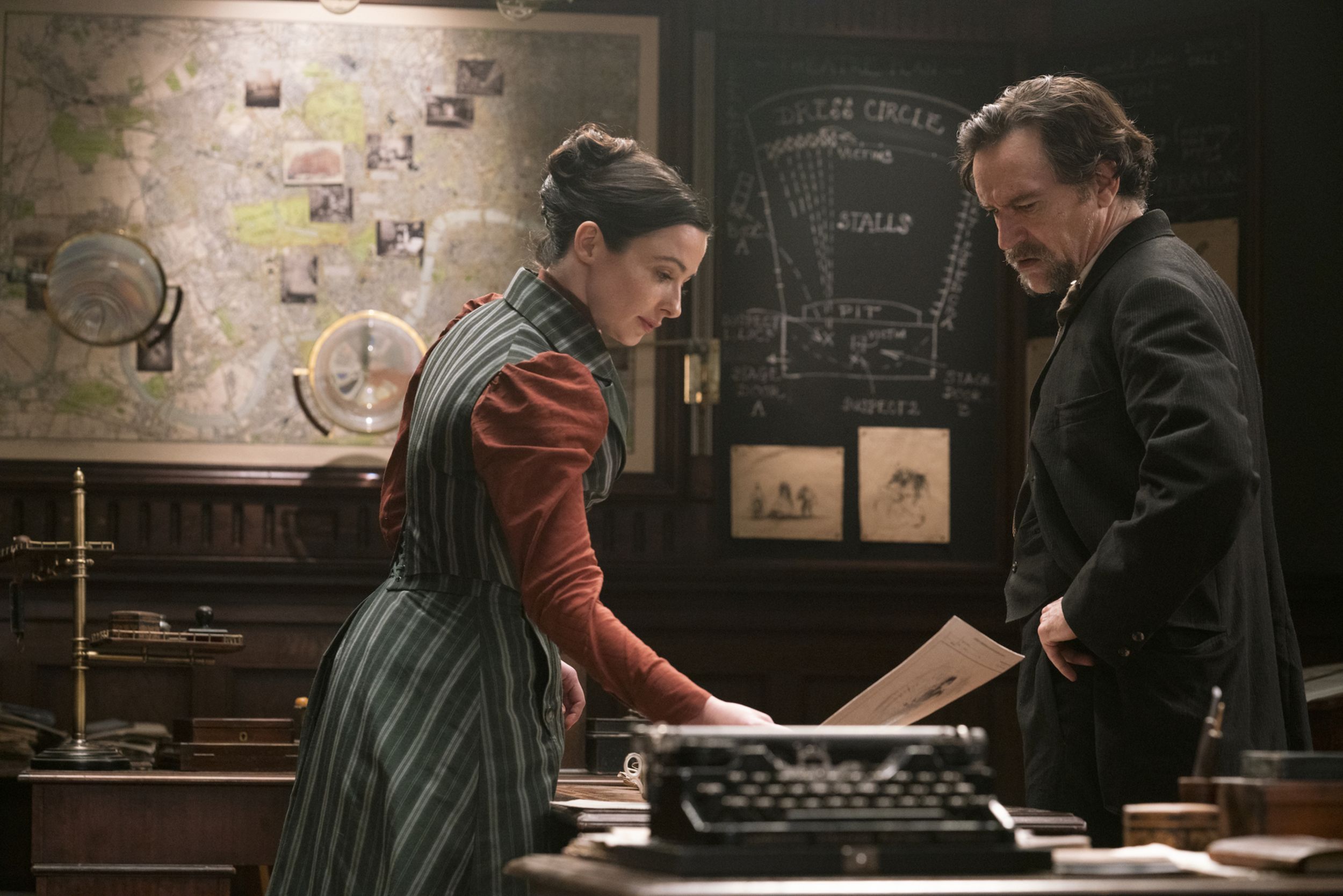
The main plot centers around a freak occurrence that creates a subpopulation in London of powered people, most of whom are women. Our heroine, Amalia True (Laura Donnelly), starts an orphanage school to bring in as many of these "Touched" girls as she can, so they can ban together against the patriarchy that treats them as "freaks." Her main antagonist, Maladie (Amy Manson), is attempting to form an opposite group, to use their power to murder their enemies. True teams up with Scotland Yard Detective Frank Mundi (Ben Chaplin), to track down Maladie. She hopes to stop Maladie and the PR damage the group creates with their strings of murders, thereby halting the British government from outlawing powered people.
That by itself would be more than enough for a single show. The problem is, there's more. It's not the government seeking to outlaw them, but a cabal led by Lord Massen (Pip Torrens) who keeps his Touched daughter locked away with the help of his housekeeper (Ruth Sheen). Massen is also appalled at Hugo Swan (James Norton), the degenerate heir of his late friend. Swan sees the Touched as a resource to be exploited for profit. He also had a gay affair with the closeted Mundi and is blackmailing him for information on True. Swan ropes in Augie (Tom Riley), the secretly Touched younger brother of Lady Bidlow (Olivia Williams), to fund his endeavor.
Lady Bidlow, in turn, is the benefactor of True's school. But she's also the secret funding behind Dr. Edmund Hague (Denis O'Hare), who uses rumors of True's school to lure in unsuspecting Touched girls. He lobotomizes them before sending them to work underground to excavate the glowing orb that may or may not be a part of why these powers manifested in the first place. Got all that? And I haven't even mentioned the underground street gang run by Declan Orrun (Nick Frost). They control the docks who Maladie's group has made enemies of and who are taking it out on True, or the secret song language that only the Touched can hear sung by Mary Brighton (Eleanor Tomlison).
And that's just the first three episodes.
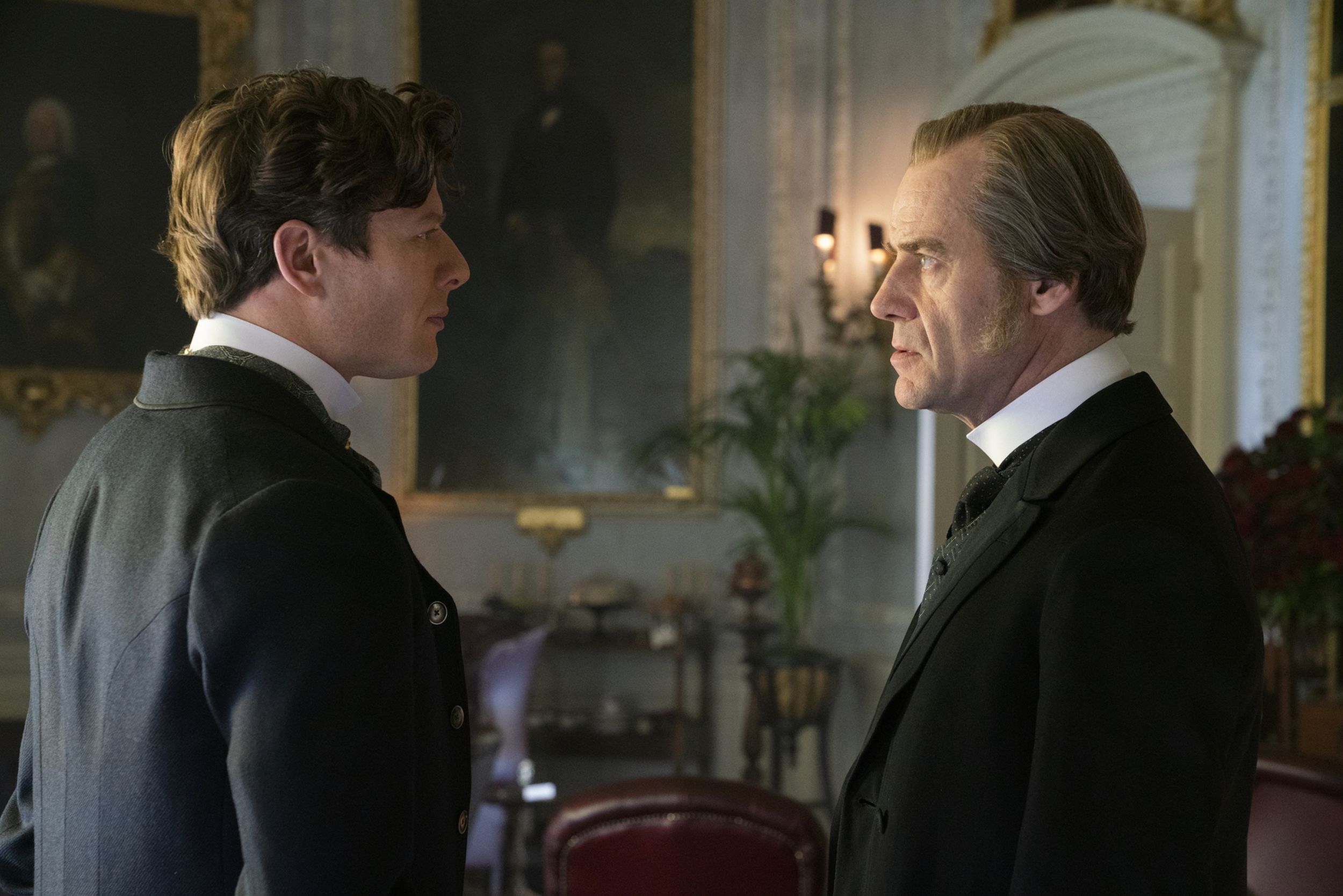
That the show is not a disaster and is even at times genuinely fun to watch is a credit both to Whedon's ability to blend all these competing stories and an exhaustive A-list cast. (Seriously, it's like the show has the Mary Poppins carpet bag of British actors.) Donnelly, Chaplin, and Torrens are all standouts, as is Ann Skelly in the role of True's second in command. Sadly, so far, the weakest link is Norton, whose character could be summed up as the actor yelling, "Me? Popular for playing a Priest! Surely you jest!" But he is the exception. Even poor Manson, in the thankless role of Maladie, is sometimes compelling.
That brings me to the other problem of the show. Whedon may have been considered a genius once, but Buffy hasn't aged well. Whedon's male gaze and frankly disturbing attitude towards torturing his female characters mar both True and Maladie's characters. The delightful Tomlinson is summarily fridged by episode 3 as a plot pivot. Then there's Whedon himself. I will not get into the allegations made against him here. (This link will serve for the curious.) But the result is that he has departed the series. Season 1 was initially slated for ten episodes. At that time, due to pandemic delays, only six were shot. Though a new showrunner has come aboard, HBO has gone with running just those six as "Season 1 Part 1" with vague promises that the other four episodes will be eventually completed and aired as "Part 2," without a mention of when.
The good news for those who like this show is that, despite the tepid reviews, enough people have tuned in so far that those episodes may eventually get made. Perhaps bringing a new and thoughtful eye to the series will be precisely what this genuinely interesting show concept needs to succeed.
Until then, those who wish to check out The Nevers can tune in to HBO on Sundays at 9 p.m. ET, and the show streams the next day on HBO Max.


